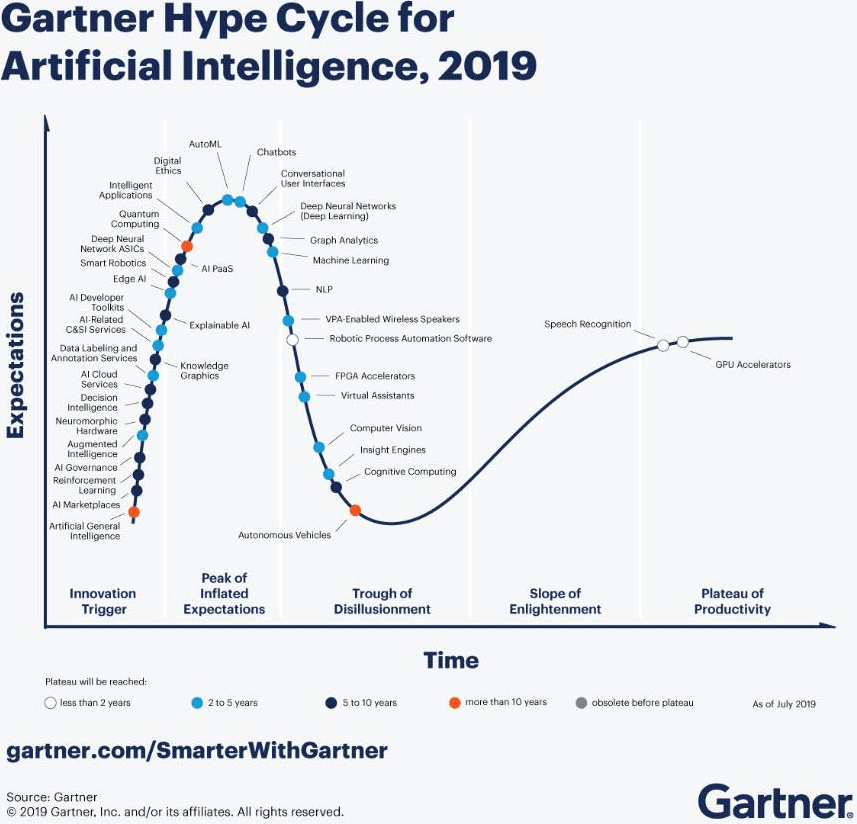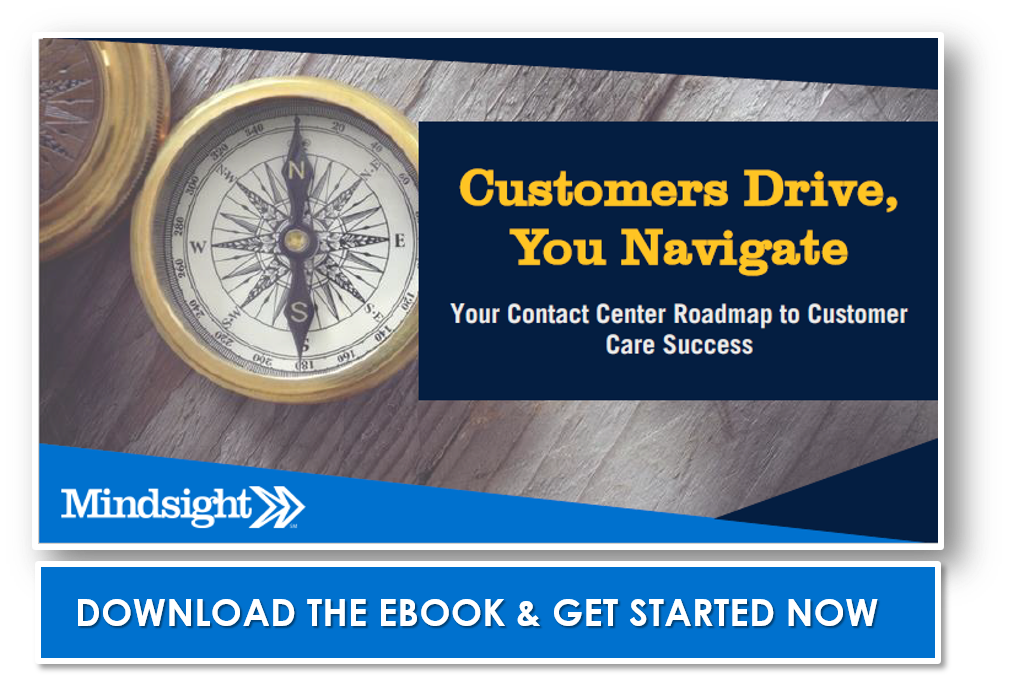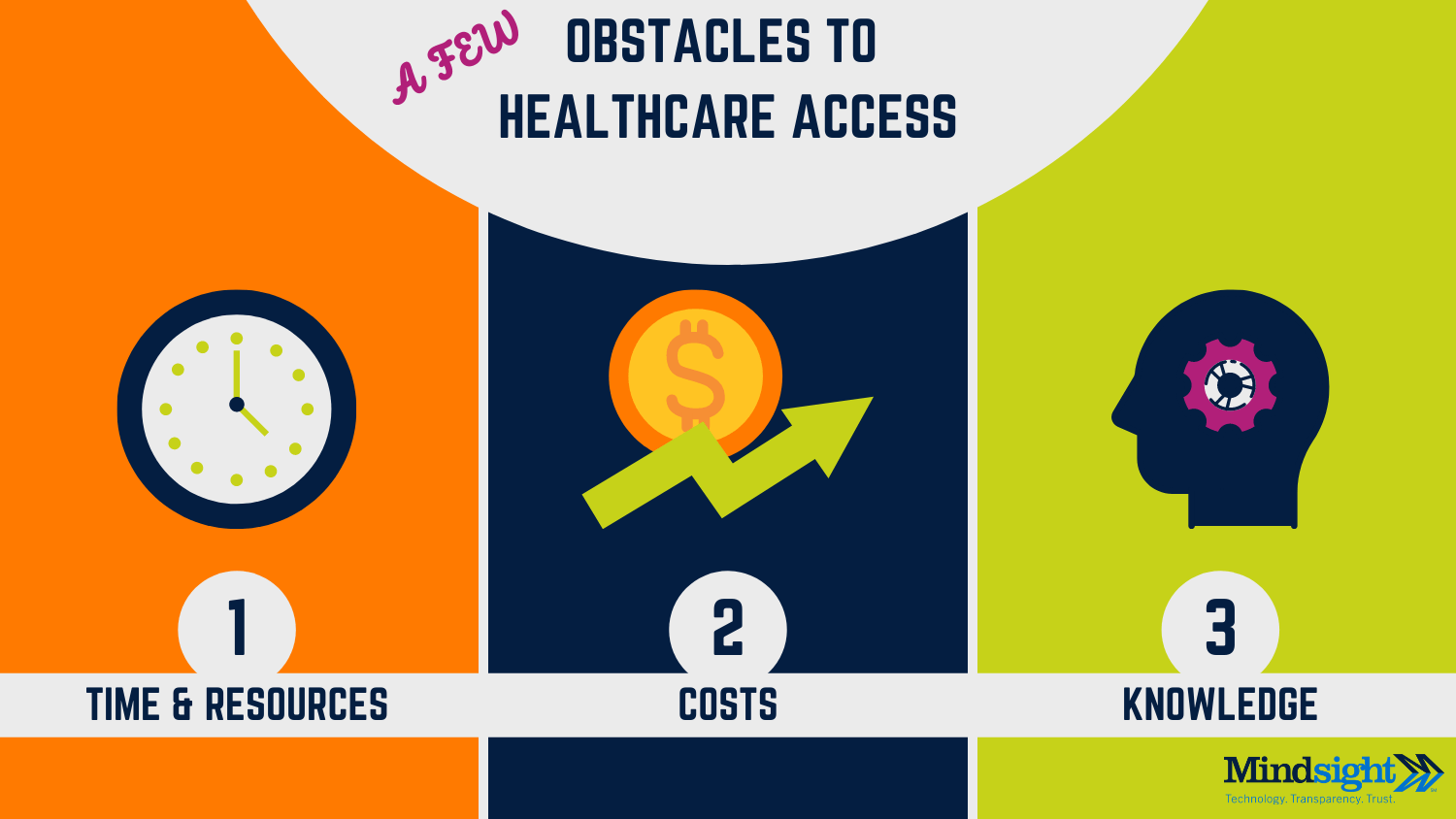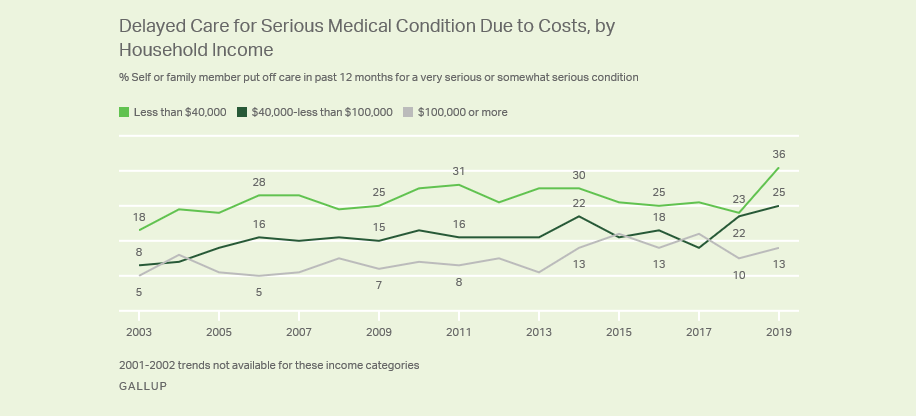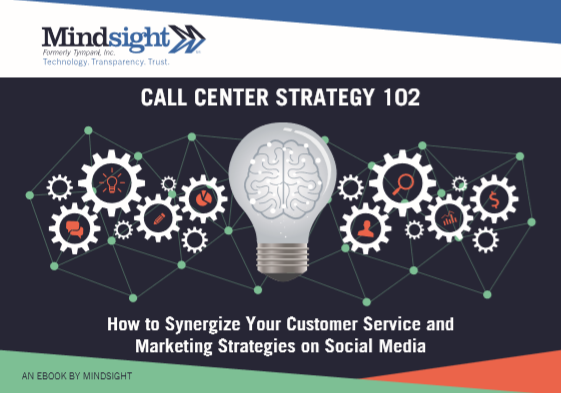August 11, 2020 by Siobhan Climer, John Irey, and Kleid Gjataj
Healthcare accessibility is always a challenge. The additional complexities of social distancing and Covid-19 policies only complicate the situation.
Yet healthcare accessibility is not a new problem; technologists and researchers have spent the better part of the last century helping bring the latest healthcare practices to everyone.
One promising technology is artificial intelligence.
When talking about AI, it is important to remember that not all artificial intelligence is created equal. Everything from augmented intelligence to virtual assistants, neuromorphic hardware to chatbots falls under the umbrella of artificial intelligence.
Gartner’s 2019 Hype Cycle for Artificial Intelligence is illuminating:
Our report today is specifically focused on the ways artificial intelligence makes healthcare more accessible. We’re exploring technology that:
- Improves healthcare professionals’ ability to access patients
- Improves patients’ ability to access healthcare professionals
- Enables atypical patients to receive better care
- Simplifies communications, documentation, or reporting
- Helps patients overcome barriers in a convoluted healthcare system
Let’s start by understanding the challenges themselves.
What gets in the way of patients and medical staff accessing one another? What current obstacles exist to keep patients, both typical and atypical, from receiving care?
What Barriers Prevent Patients From Accessing Healthcare?
As most folks know, we could dedicate several tomes to detailing the complexity of the American healthcare system. Needless to say, there are lots of stakeholders, lots of inequalities, and lots of nuances. These challenges get in the way of accessing healthcare.
Time & Resources: Have you ever had to wait on hold with a healthcare provider, insurer, or pharmacy (or all three)? It can take hours to worm your way through the network of individuals responsible for providing care. Not everyone has the time or resources dedicated to managing that system.
Costs: About 33% of Americans delay medical treatment due to costs, and that number has crept up to 40% after the coronavirus outbreak.
Knowledge: What’s a copay? How do I know I need a second opinion? Should I call 911 and take an ambulance or get my friend to drop me off? The above challenges are magnified when preexisting conditions come into play.
It would be remiss to ignore the variance in healthcare accessibility experienced by high-income and low-income families. In addition, Black, Hispanic, and some Asian populations experience greater obstacles to healthcare accessibility, even when other factors (i.e. insurance coverage, salary, geographic location, etc.) are taken into account.
4 Ways Artificial Intelligence Increases Healthcare Accessibility
While artificial intelligence cannot overcome some of the barriers to healthcare accessibility, it is making inroads at eliminating many of the challenges.
AI Creates Better Patient Experiences
Conversational AI has flipped the narrative on automated customer experiences. Several healthcare entities are adopting new AI directed at improving the experience of calling, scheduling, and accessing healthcare institutions.
One such solution, SmartAction, combines speech recognition technology and an AI-powered virtual agent to create a better system that helps patients:
- Route call center systems efficiently
- Schedule check-ups
- Set up payment arrangements
Learn more about SmartAction. Contact Mindsight to learn how you can implement SmartAction for your healthcare contact center.
AI and Predictive Analytics For IT Professionals
On a broader level, artificial intelligence and predictive modeling increase efficiencies in delivering and accessing care. In a press release, faculty director Nigam Sha, PhD, offered this take on Stanford’s launch of a four-course online program on artificial intelligence in healthcare for IT professionals.
“Stanford’s AI in Healthcare program will equip participants to design solutions that help patients and transform our healthcare system. The program will provide a multifaceted perspective on what it takes to bring AI to the clinic safely, cost-effectively, and ethically.”
With IT on the side of healthcare professionals, AI has a greater potential to drive the benefits the healthcare system needs.

AI Helps Make Healthcare Data Useful
Data is everywhere. In healthcare, the data can mean the difference between life and death – if you can make sense of it. Artificial intelligence and machine learning are making a huge difference for medical professionals by helping organize data.
Thomas Davenport and Ravi Kalakota published The Potential for Artificial Intelligence in Healthcare last June and discussed the use of artificial intelligence in healthcare in-depth.
“In healthcare, the dominant applications of NLP (natural language processing) involve the creation, understanding and classification of clinical documentation and published research. NLP systems can analyze unstructured clinical notes on patients, prepare reports (eg on radiology examinations), transcribe patient interactions and conduct conversational AI.”
How does data analysis make healthcare more accessible? In this case, the subset AI field of NLP is making data more accessible to healthcare providers everywhere, who can then turn around and implement insights from that data for their patients.
Plus, by simplifying the tasks for physicians and nurses, NLP technology helps those healthcare professionals focus on their real job – providing quality care.

AI and Robotic Process Automation (RPA) Cover The Basics
Gaining prior authorization, accessing updated patient records, or simply paying your bill are important steps in accessing healthcare for patients, yet these tasks are huge time sinks for medical offices and their administrators.
Robotic process automation (RPA) uses a combination of workflow, business rules and a ‘presentation layer’ integration to perform structured digital tasks for administrative purposes.
The failure to perform these tasks impacts the quality and timeliness of care individuals receive. Implementing an RPA solution can increase efficiency and performance of medical facilities, helping patients access higher quality, informed healthcare.

Why Isn’t Artificial Intelligence Everywhere Then?
If artificial intelligence improves healthcare accessibility and outcomes, why aren’t hospitals and medical facilities the world over implementing these solutions?
Unfortunately, healthcare leaders often underestimate the resources needed to effectively deploy AI technology. In fact, RPA projects have a 50% failure rate, according to CIO.com.
Implementing conversational AI or robotic process automation takes more than a will – you need a way, a plan, a strategic assessment and process for implementation.
With a technology advisor and guide in place, you can successfully implement artificial intelligence solutions that improve healthcare accessibility and outcomes for patients.
See what we can do for you. Contact us today.
Like what you read?
About Mindsight
Mindsight is industry recognized for delivering secure IT solutions and thought leadership that address your infrastructure and communications needs. Our engineers are expert level only – and they’re known as the most respected and valued engineering team based in Chicago, serving emerging to enterprise organizations around the globe. That’s why clients trust Mindsight as an extension of their IT team.
Visit us at http://www.gomindsight.com.
About The Authors
John Irey is a Principal Consultant at Mindsight focused on Cisco platforms. With nearly 20 years of experience in information technology, John has helped businesses of every size optimize the technology powering the contact center. He seeks to provide a consultative voice to contact center leaders and continues to focus on emerging technology, such as machine learning and artificial intelligence.
Kleid Gjataj is a Principal Consultant at Mindsight focused on Genesys platforms. With nearly 15 years of experience in both domestic and international consulting, Kleid helps contact centers of all sizes bridge the gap between business and technology. His extensive experience with IVR, ACD, screen pops, omnichannel, speech analytics, quality management, outbound dialer, and custom applications is grounded in understanding the critical value of the customer journey.
Siobhan Climer writes about technology trends in education, healthcare, and business. With over a decade of experience communicating complex concepts around everything from cybersecurity to neuroscience, Siobhan is an expert at breaking down technical and scientific principles so that everyone takes away valuable insights. When she’s not writing tech, she’s reading and writing fantasy, hiking, and exploring the world with her twin daughters. Find her on twitter @techtalksio.
EDCi’s EHRConnect: Epic Integration Eases Healthcare Contact Center Experience
